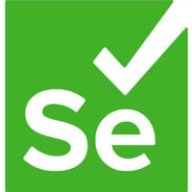

Find out in this report how the two Functional Testing Tools solutions compare in terms of features, pricing, service and support, easy of deployment, and ROI.
The marketplace community and forums are what we browse and look after, and we have found solutions whenever we tried to find anything.
I have not had the need to escalate questions to Selenium HQ tech support recently, as open community support is widely available and has been sufficient for our needs.
They get into the meeting, understand the problem, and try to provide a solution quickly.
Support should be free, especially for product-related issues.
I would rate UiPath's support neutrally at a five.
We can execute thousands of test cases weekly, and our automation coverage using Selenium HQ is approximately eighty-five percent.
Proper knowledge of Orchestrator and CI/CD processes makes the product truly scalable.
Scaling with UiPath Test Cloud is supported; they have the infrastructure to scale automation to meet business needs.
Selenium HQ is a scalable solution; it has been in production for the last two years, but I have been working on it for the last six years, so it is definitely scalable.
UiPath Test Suite has matured over the years and is now quite stable.
It is performing better than two to three years back; significant improvements have been made for complete project delivery.
An automatic update mechanism for Selenium HQ would be beneficial, eliminating the need for manual downloads and updates of browser drivers when new versions are released.
I don't know if we have that capability to provide different data sources such as SQL Server, CSV, or maybe some other databases, so that kind of capability would be great.
If they could add defect management, it could work independently without needing Jira.
I've noticed that adding more users impacts the speed, although nothing stops entirely.
UiPath should introduce compatibility so existing processes in Selenium or other tools can work seamlessly with UiPath Test automation.
Our customers usually pay around 30K to 35K for five licenses, which is priced per year.
The pricing of UiPath tends to be on the higher side, which can restrict smaller companies from adopting it.
Selenium HQ supports multiple browsers via grid hosting and offers dynamic configuration setup for testing across Chrome, Edge, and Internet Explorer.
When we were doing these tests manually, it took several hours of effort, and those hours, when counted on the basis of person days, used to be maybe six or seven months of effort, which we can now do every day by running the pipeline.
The ability of the test suite to automate tests across a wide range of technologies is great since UiPath's background in RPA is specifically designed to automate basically any and all technologies.
Some of the best features I find with UiPath Test Cloud include the creation of end-to-end workflows with API integration.
The most valuable feature of UiPath Test Cloud that I have found is the TestManager dashboard, which integrates with Jira through Planview Tasktop.
| Product | Market Share (%) |
|---|---|
| UiPath Test Cloud | 3.2% |
| Selenium HQ | 3.2% |
| Other | 93.6% |

| Company Size | Count |
|---|---|
| Small Business | 41 |
| Midsize Enterprise | 33 |
| Large Enterprise | 51 |
| Company Size | Count |
|---|---|
| Small Business | 4 |
| Midsize Enterprise | 4 |
| Large Enterprise | 19 |
Selenium HQ is an umbrella project that includes a number of tools and frameworks that allow for web browser automation. In particular, Selenium offers a framework for the W3C WebDriver specification, a platform- and language-neutral coding interface that works with all of the main web browsers.
Selenium is a toolset for automating web browsers that uses the best methods available to remotely control browser instances and simulate a user's interaction with the browser. It enables users to mimic typical end-user actions, such as typing text into forms, choosing options from drop-down menus, checking boxes, and clicking links in documents. Additionally, it offers a wide range of other controls, including mouse movement, arbitrary JavaScript execution, and much more.
Although Selenium HQ is generally used for front-end website testing, it is also a browser user agent library. The interfaces are universal in their use, which enables composition with other libraries to serve your purpose.
The source code for Selenium is accessible under the Apache 2.0 license. The project is made possible by volunteers who have kindly committed hundreds of hours to the development and maintenance of the code.
Selenium HQ Tools
These three main Selenium HQ tools have powerful capabilities:
Reviews from Real Users
Selenium HQ stands out among its competitors for a number of reasons. Two major ones are its driver interface and its speed. PeerSpot users take note of the advantages of these features in their reviews:
Avijit B., an automation tester at a tech services company, writes of the solution, “The driver interface is really useful. When we implement the Selenium driver interface, we can easily navigate through all of the pages and sections of an app, including performing things like clicking, putting through SendKeys, scrolling down, tagging, and all the other actions we need to test for in an application.”
Another PeerSpot reviewer, a software engineer at a financial services firm, notes, “Selenium is the fastest tool compared to other competitors. It can run on any language, like Java, Python, C++, and .NET. So we can test any application on Selenium, whether it's mobile or desktop."
UiPath Test Cloud enhances test automation through agentic testing, integrating AI with human efforts for comprehensive quality assurance. It supports seamless integration with diverse tools, offering easy debugging and reduced maintenance costs with its low-code design and automation capabilities.
UiPath Test Cloud offers a unified platform facilitating automation and regression testing across applications like web frameworks and supply chain systems. Its intuitive interface integrates with tools such as Jenkins, allowing efficient workflows. While tackling mobile and automation challenges, it demands improvements in manual testing options and third-party integrations. Enhancements in file management, AI integration, and reporting are necessary for optimal performance.
What are the key features of UiPath Test Cloud?In industries like supply chain management and vendor systems, UiPath Test Cloud is implemented to ensure software stability post-updates, assisting in workflows and data handling. It supports communication with vendors while reducing time to market, even amid current challenges in mobile automation and third-party tool integration.
We monitor all Functional Testing Tools reviews to prevent fraudulent reviews and keep review quality high. We do not post reviews by company employees or direct competitors. We validate each review for authenticity via cross-reference with LinkedIn, and personal follow-up with the reviewer when necessary.